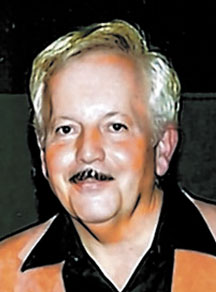Mack Williams: Marie-Louise
Published 12:00 am Sunday, April 21, 2019

Mack Williams
I had to change the subject of this week’s column because of a friend’s death, occurring as abruptly as an unannounced curve on a narrow, twisting, mountain road.
This column’s “late” subject is a tall, beautiful, sweet lady named “Marie-Louise,” who came here from Holland with her American husband in 2004, joining Danville’s First Presbyterian Church. She became a great “resuscitator” of “the life of the church” (there are “great reformers” and “great resuscitators”).
Marie-Louise became involved in chancel choir, bell choir, was elder, deacon, church officer, membership committee member, and Saturday morning Bible study and lunch program committee member.
She was also a Danville Science Center board member, and involved with Crop Walk, Garden Club, and Wednesday Club. She taught in the church’s day school, and devoted herself to saving one particular little boy from going down one of life’s many wrong paths. I’ve most recently heard it said she prevented many such “veerings.”
I can’t walk through Danville without picturing her, exercise-walking, revitalizing herself in a city which she was working to revitalize as well.
Marie-Louise asked me to sing German folk songs at a local festival she was organizing, since I’m probably Danville’s closest thing to a “kraut” (old Vic Morrow terminology). There are some German ladies here, but they don’t sing.
Because of her beauty (and Netherlanders’ knowledge also of German), I sometimes “picked” with her using a play on words. Richard Wagner wrote the opera “Der Fliegende Hollander” (The Flying Dutchman). I changed the masculine “der” to feminine “die” (pronounced “dee”), interchanged “schoenste” (beautiful) with “fliegende” (flying), and added the feminine ending “in” to “Hollander” to greet her with: “Die Schoenste Hollanderin!” (“the most beautiful Dutch woman!”). I used the older German double vowel in “schoenste,” as my keyboard has no umlaut.
I sometimes called her “Maria-Theresa” and she laughed, saying that was okay (Maria-Theresa was a Queen, and so was Marie-Louise).
One time I “stereotypically” asked Marie-Louise about wooden shoes, and she said she owned a pair. I also inquired about Holland’s “Tulip Mania”(1630s), but I promise I didn’t mention “Hans Brinker, or The Silver Skates” (humanity does have a penchant for “pigeon-holing!”).
I still have a church flower vase in which Marie-Louise brought me altar flowers during my hospital and re-hab stay from hip replacements. I recently told her I still had the vase, and would bring it back; she said the church had many, just whenever I happened to think of it. Instead, I’m now keeping it for a memory (on record for planning to steal church property!).
Her death from heart attack at age 52, especially at this time of year, made it seem that just as a multitude of tulips were opening, a very precious one closed.
Marie-Louise’s funeral was a sad, but a spiritually inspiring, humanity-filled occasion. I forced myself to look at the body briefly; as I’m from the older “Saint Thomas school” in which one must see things for one’s self (although in this case, not life returning from death, but life having departed into death).
The music was performed beautifully. Even when one bell ringer accidentally struck her music stand, making a disturbing, unmusical “thud,” it seemed as fitting as death’s rude, intruding bass drum beat at the beginning of the final movement of Gustav Mahler’s 10th Symphony.
At the mall, I recently saw a tall, beautiful, blond lady resembling Marie-Louise at a distance, causing a reflexive second glance, despite fully knowing she was truly gone. My late friend, Salisbury’s Esther Rufty-Hodgin was also blond, sweet, beautiful,intelligent, and artistic. And it’s been quite a while since I’ve almost “caught a glimpse” of Esther at a distance in some public place.
Just like that long extinguished, habitual response (old psych-major talk) concerning Esther, with time this new habitual response of having almost “caught a glimpse” of Marie-Louise at a distance, somewhere in public will eventually extinguish itself




